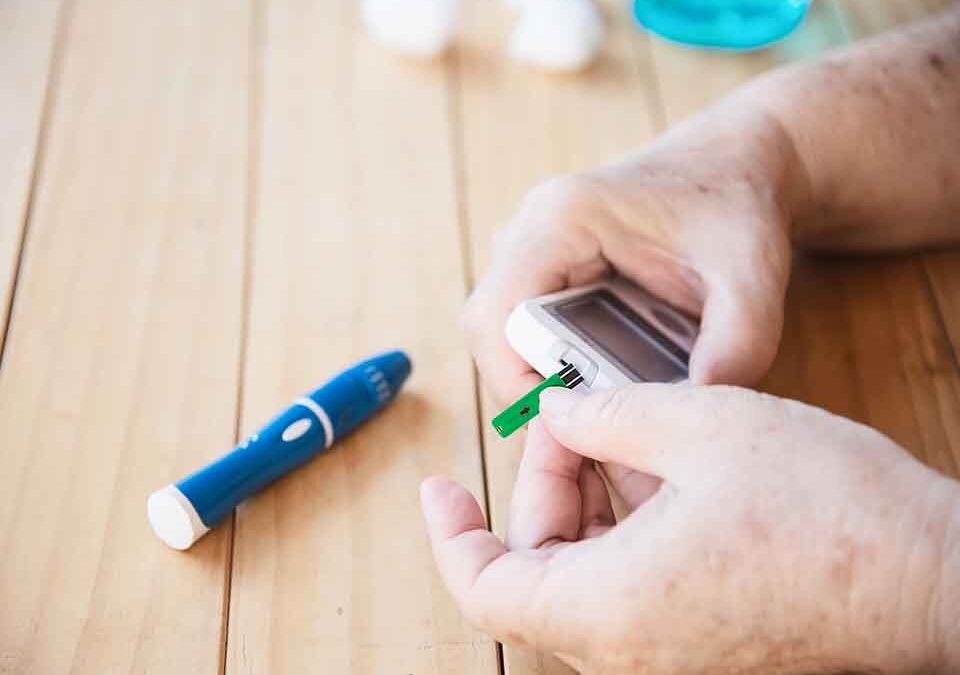
Can Diabetes Affect Your Sleep Schedule?
April 28, 2021
Can Diabetes Affect Children?
April 28, 2021Defining Diabetic Neuropathy
Any damage to nerve cells leads to a condition called neuropathy. Nerve cells play a vital role in movement, sensation, and touch. Diabetic neuropathy is nerve damage caused by diabetes. Scientists are of the opinion that high blood sugar levels damage nerves over a period of time. There are numerous types of neuropathies, including peripheral (pain and numbness in the arms, legs, feet, and toes), proximal (pain and numbness in the upper legs), autonomic (nerve damage in the autonomic nervous system), and focal (abrupt loss of function in the nerves, causing muscle pain and weakness).
Management
When diabetes causes nerve damage, the condition cannot be reversed. This is because the human body cannot repair damaged nerve tissues naturally.
While diabetic neuropathy cannot be reversed, there are specific ways to effectively help in managing the condition, such as:
- Keeping your blood sugar levels in control
- Treating nerve pain
- Practicing optimal care of the feet, to ensure there are no infections or wounds
Effective management of blood glucose levels is crucial because it can prevent further damage to your nerves. In addition, it is vital to pay attention to your legs and feet. Nerves present in the legs and feet can be significantly damaged, which can cause reduced feeling. This eventually means that you may fail to notice it if your feet or legs suffer from any cuts or injuries.
To prevent any damage to your legs or feet you must:
- Periodically check your feet for sores or open wounds
- Regularly clip your toenails
- Regularly wash your feet with water and soap
- Visit a podiatrist on a regular basis
- Avoid barefoot walking in your house
Complications
Nerves have numerous, vital functions in the body. Hence, diabetic neuropathy can lead to several, grave complications.
Digestive Problems
Nerves damaged due to diabetic neuropathy can adversely affect your digestive system organs, which can cause vomiting, nausea, diarrhoea, constipation, and impaired hunger. In addition, it can directly affect the manner in which food moves in your stomach and the intestines. These complications can cause poor nutrition levels and difficult-to-manage blood sugar levels.
Sexual Dysfunction
If you develop autonomic neuropathy, there could be a possible harm to the nerves that control the sexual organs. Common complications include erectile dysfunction in men, issues with vaginal lubrication and sexual arousal in women, and impaired stimulation in both women and men.
Leg and Foot Infections
Nerves in the legs and feet are, by far, the most commonly affected in peripheral neuropathy caused by diabetes. This may lead to loss of sensation to your legs and feet. Cuts and sores may develop without you paying any notice, leading to infections. In some severe cases, infections can become extremely serious, leading to ulcers. Over a period, this can cause irreversible damage to the soft tissue, eventually leading to loss of toes or, may be, even your foot.
Damage to Joints in the Legs
Damage to the nerves present in your legs can lead to a condition that is called “Charcot’s joint.” This leads to numbness, swelling, and lack of stability in the joints.
Excessive or Reduced Sweating
Nerves affect the function of sweat glands; therefore, nerve damage can lead to abnormal functioning of your sweat glands. Common complications include reduced sweating (anhidrosis) or excessive sweating (hyperhidrosis). These complications may affect the regulation of body temperature.
Urinary Problems
Nerves play a vital role in controlling the bladder and the urinary system. If the nerves that control these systems are damaged, you may not have the ability to recognise a full bladder, leading to poor control of urination.
The Final Word
Diabetic neuropathy, a common condition in individuals with diabetes, cannot be reversed. That said, you can effectively manage it in several ways, including proper management of blood sugar levels, taking all your medications properly, and regular self-monitoring of your legs and feet to check for infections and injuries.
Reference Link:
https://www.healthline.com/health/diabetes/can-diabetic-neuropathy-be-reversed#outlook




